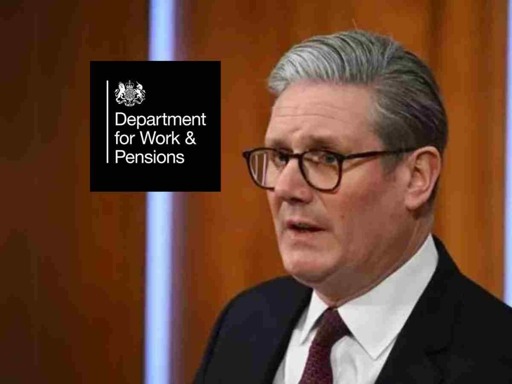Yesterday, 15 October, grassroots organisation the Access to Work Collective delivered an open letter with over 17,000 signatures to 10 Downing Street. Lib Dem MP Steve Darling and Green MP Carla Denyer also lent their support to the letter. It follows the launch of the collective’s #AccessToNowhere campaign earlier this year over the Department for Work and Pensions (DWP).
The Access to Work Collective is calling for urgent reforms to the Access to Work (AtW) scheme from Starmer and his government. They want to ensure that no disabled person is forced out of work just because of avoidable accessibility barriers.
‘Pushed out of work’
Dr Shani Dhanda, co-founder of the AtW Collective, said of the letter to the DWP and government:
We’ve delivered this letter because disabled people are being pushed out of work by a system that’s meant to help us stay in it. It’s a false economy to spend public money forcing people out of work only to pay more in benefits. Investing in Access to Work keeps disabled people in jobs, supports businesses and strengthens the economy. We’re asking the Prime Minister to work with us to fix what’s gone wrong so disabled people can get on with their jobs and lives.
AtW is a DWP scheme that was intended to help people with health conditions or disabilities get work and stay in work. The support given is meant to be adjusted according to each individual’s need. It can include grants towards the cost of things like practical support and mental health support at work. Likewise, it can also be used for communication support (interpreters etc.) for interviews.
The DWP scheme has made employment possible for thousands of disabled people, acting as a lifeline in the world of work. However, disabled people have sounded the alarm about mounting waiting list times and the inconsistency in decisions regarding their AtW.
Cutting by stealth
James Taylor, executive director of strategy at disability charity Scope, said:
There are a million disabled people who want to work, but are denied the opportunity. Access to Work is a vital lifeline which allows thousands of disabled people to work who otherwise would not be able to. But the system urgently needs improvements. There are huge delays getting support. We hear from disabled people who have had to leave jobs because it’s taken too long for Access to Work funding to come through. Far too many employers don’t know about Access to Work, meaning disabled people are missing out on support. And worryingly, we’re hearing of disabled people who are having their Access to Work funding cut, meaning they are losing support and won’t be able to keep working. The government needs to invest in Access to Work so it can support more disabled people to get into and stay in work.
The DWP repeatedly denied that it was making cuts to the AtW scheme. Then, earlier this month, DWP minister Stephen Timms finally admitted that he had “very likely” signed a proposal instructing AtW staffers to apply grant guidelines more “scrupulously”.
Two days ago, the government published the official 2025 Access to Work figures. They clearly illustrate exactly how much AtW has already been slashed, as seen multiple key areas:
The number of AtW provision approvals plummeted from 68,730 people in the 2023-24 financial year to 61,670 people in 2024-25.Support workers, special aids and equipment, mental health support services, and travel to work are the most commonly approved Elmnet types. Every one of them has seen a decrease in approvals averaging 9.5% in the last financial year alone.In the 2024-25 financial year, the real-terms expenditure on any provision increased by 17% compared to the previous year. By comparison, in 2023-2024 that expenditure increased by 33% compared to the previous year.
A DWP own-goal
Jacqueline Winstanley, the other co-founder of the Collective, spoke out about the backwards thinking behind these DWP cuts:
Every pound invested in Access to Work goes straight back into the economy, through the disabled people it supports and the suppliers who deliver that support. It’s the only Treasury-funded programme that has consistently reduced the disability employment gap since its launch in 1994. The current and proposed changes are already harming people’s health, wellbeing and livelihoods, while undermining the government’s own goal of getting more disabled people into work.
Labour has said repeatedly that it wants to get people into work. The AtW scheme has been an example of how exactly that can work in practice. It’s allowed thousands of disabled people to get work that would otherwise have been denied to them.
The fact that the DWP has been cutting away at AtW, forcing people out of work due to their support needs going unmet, is proof that Starmer’s claims about getting people working are just empty window dressing. The AtW scheme needs urgent reform.
Meanwhile, Labour must realise that picking on disabled people in order to appear ‘tough on benefits’ is a level of spite that should be unconscionable even for a party of soulless corporate shills.
Featured image via the Canary
From Canary via this RSS feed


